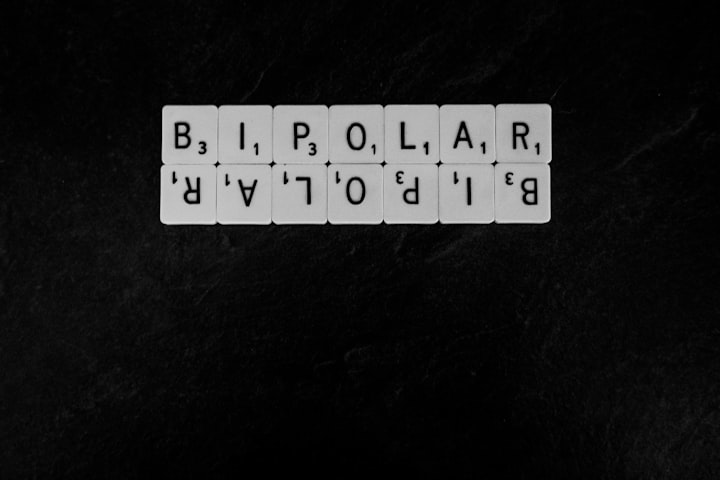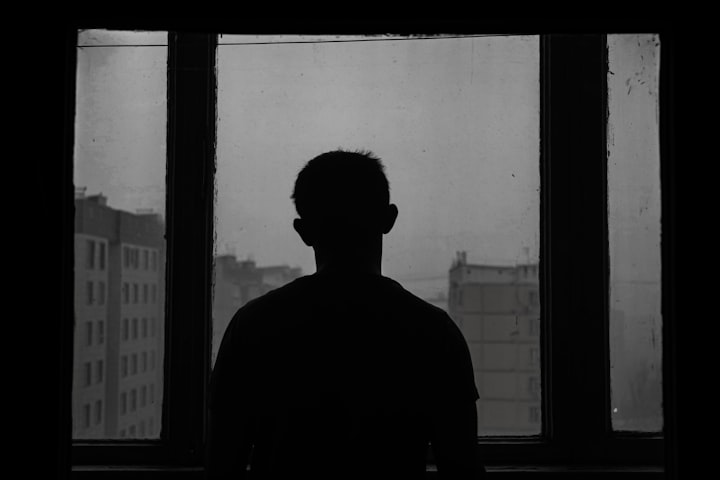Living Through Bipolar Disorder
How I Get to the Other Side

***Disclaimer: This article, in no way, should be taken as medical advice. This is just MY experience with bipolar disorder. Persons with this diagnosis must remain in treatment and remain on the medication regimen that their doctors prescribe. Always consult your practitioner.***
The ups and downs of roller coasters. The rage and chaos of a hurricane. The destruction and fury of a tornado. Riding the waves of bipolar oceans. These are all great, really accurate metaphors for bipolar disorder. In this article, I want to paint a real-time picture of a bipolar cycle. A whole cycle is from the first signs of mania to a return to baseline. The phases for me are the manic episode and the depressive episode. Here is my typical bipolar cycle.
The first sign I am heading to a manic episode is usually my need for to-do lists. I know, it sounds random. Looking at the to-do lists I make, I realize they are full of random items, essential things, such as calls I have to make or bills I have to pay. Usually, this is also when I start speaking fast and bouncing from conversation to conversation, one idea to the next. This coincides with severe racing thoughts, and will continue for about two days until the racing thoughts get unmanageable. This leads to anxiety. Anxiety about a landslide that happened a couple of miles away from my house 25 years ago. Nuclear holocaust. Did I shut the heaters off? Wait, did I pay the national grid bill? Oh my God, Yellowstone is going to erupt and kill us all. We can't take the highway because we will die in a fiery wreck. What if we hit a deer on the way to the store and roll down the side of the hill? I hope the kids are ok. I haven't heard from them today. And so on and so on. Before I know it, it is 4 am, I am wide awake, and there is no chance for sleep. This is the onset of insomnia, which usually lasts the duration of my manic episode. Hyperactivity takes hold. I am super productive during this time. House is spotless, and dinner is fantastic. I am more productive in the shop. Hypersexuality begins to the point that sex is all I think about and crave. I am not eating or sleeping at this time and have a very grandiose view of myself. This all can last from two or three days (hypomania) or two or three weeks. (hyper mania)
Although the anxiety has subsided by this point in this episode, paranoia has taken its place. I am impossibly irritable. Explosively angry. By this point, I am usually fighting with my husband non-stop over ridiculous things. I am impossible to deal with, and everything sets me off. The racing thoughts and paranoia have considerably increased during this time, and the thoughts are entirely irrational. Is the house going to catch on fire? I know my husband is plotting my death. We are all going to die because an asteroid is going to smash into the earth. My heart is exploding. I am going to have a massive heart attack and die. This usually lasts for a couple of days as well. By the end of my manic episode, I am at odds with everyone. My social media posts get ridiculous and confrontational. I consider going off my meds because in my distorted thinking, I don’t need them. My manic episodes leave a trail of destruction and hurt in its wake.
Then comes what I call the crash. It starts with finally sleeping, just from pure exhaustion. Usually, I will sleep for ten to twelve hours. When I wake up, I am super emotional. I usually cry for about a day. Not out of depression, but more out of hopelessness. Embarrassment for the way I behaved and exhausted from the battle. I spend so much time and energy during this crash surveying the damage that was done, and apologizing. I need constant reassurance that I am not going to be left. I need love and affection. This crash can last for a few days, but usually the need for reassurance and affection lasts for weeks or until the next cycle.
During the crash is when the depression creeps in. Admittedly, I do not struggle through the depression episode as much as I do the mania. After my latest manic episode, the depression lasted for about a month, but that was unusually long for me. There is also a feeling of hopelessness during that time. I get caught up in feeling like the battle will never end. And the reality is, it won't. It will always be there. I get caught up in expecting people to leave me because loving me through this is too hard. There is no motivation to do anything. Even the slightest tasks seem overwhelming. The things that bring me joy or contentment no longer do. I am usually emotionally numb during the depressive phase.
These cycles and behaviors are out of the control of a person with bipolar disorder. When I am in a manic episode, I am aware that I am acting, or saying things, or behaving in a way that is not normal for me. When I am irritable and harsh with people, I hear myself and I am aware that it is wrong, but I can't stop it. It feels like I have no control over it.
So how do I cope with all of this? How do I minimize the damage done? How do I stay in the fight and not just decide to give up? How do I get to the other side?
With proper medication, psychiatric care, and support. The goal of treatment for me is to decrease the cycles and to help lessen the severity of these episodes. I have a great support system. My husband can usually recognize the signs that I am trending towards mania before I do. He will let me know, and that doesn't always go well. But I know he is just looking out for me and wants to protect me, and he confronts it as gently as possible. Why is this important? Mostly to prepare ourselves for what is coming. There is one medication I can increase during manic phases, which helps stop it from turning severe, though not always. I take safeguards like not posting on social media, and I pull back from some relationships temporarily. I do this mainly to lessen the chances of hurting someone emotionally. I do not make any purchases without my husband’s approval. My husband also plays interference for me during this time. He deals with any family issues that come up, anything the kids need and protects me from people who drain me. (We all have those people in our lives.) Most importantly, he is there. He helps me to keep on task and manage my hyperactivity. When my emotional perception is off, he is who I turn to to help me identify what reality is. He is my steadfast partner. He is my center. My manic episodes are every bit as traumatic for him. We experience it together.
Another part of what helps me cope and get through the mania and the depression is counseling. During both phases, my counselor sees me once a week. We go back to every two weeks when I am better. He helps me identify cognitive distortions and helps me reframe my thinking. He reminds me to do my centering exercises and follow the treatment plan. It is beneficial having someone guide me through the worst of it. Therapy is an invaluable tool. With my psychiatric practitioner's help, we manage my medication quite well. After about three years of trial and error, she has found the exact combination that works for me, as well as when to change doses during a manic episode. I rely very heavily on my care team, and that has enabled me to stay out of the hospital for mania or depression for two years.
I also have three people I trust who have become invaluable in helping me get through these times. My mother is someone I can talk to about exactly how I am feeling and allows me pin down the right words to express that. She also reminds me of how bad things were when my bipolar was not managed and how many people in my life love and need me. That keeps me in the fight. My best friend helps me by listening, helping me see things accurately, and challenging me when I am unbearable. She also holds me accountable to resume my daily activities and objectives when I am in the throes of depression. Getting back to a regular routine is essential when struggling with depression, and it certainly helps me. One other friend that helps me through this time specifically holds me accountable as far as creativity goes. She makes sure I am playing my piano and singing. She reminds me to create, whether it be artwork, painting, or building a piece of furniture. Perhaps most valuable to me is that she keeps me writing. Thoughts. Feelings. Stories. Poems. She knows me well and understands that creative expression is an important part of self care that is essential to my well-being.
Even with all the help and support I have, sometimes the mania gets away from me. My support system understands that, and they love me through it. These people also help me recognize situations that have hurt people or places where I need to make amends.
They say it takes a village to raise a child. For me, it also takes a village (a small one) to get me through the rough times. There is a certain amount of humility that comes with having to depend on other people, and I am working through that. It is a tough pill to swallow. (pun intended!) I hope that more people will come forward with their stories of living with bipolar. If for no other reason than to show that we are not alone in our struggles, and that we can lead happy and productive lives.
Thank you for reading about my life with Bipolar. If you would like to read more of my work, here is my Vocal profile. Check it out! https://vocal.media/authors/j-delaney-howe
Here is a poem about how others see me as a person with Bipolar. Messy.
About the Creator
J. Delaney-Howe
Bipolar poet. Father. Grandfather. Husband. Gay man. I write poetry, prose, some fiction and a good bit about family. Thank you for stopping by.
Queer Vocal Voices on Facebook.
Find me on Facebook.






Comments
There are no comments for this story
Be the first to respond and start the conversation.